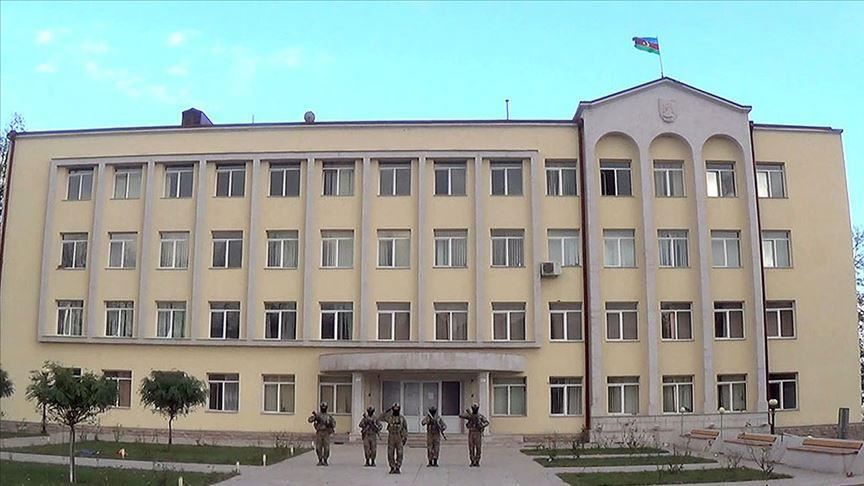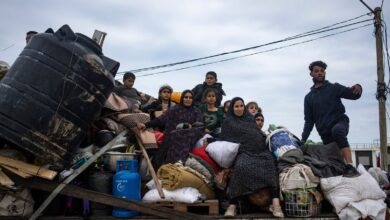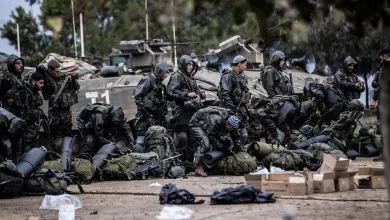On the National Flag Day of Azerbaijan, the country’s tricolor flag has been seen waving in the city of Shusha recently liberated from Armenia’s occupation.
The Azerbaijani Defense Ministry shared footage showing surroundings of the city, houses, empty streets, famous Shusha mosque, and Azerbaijani flag fluttering on the building, in front of which Azerbaijani troops has declared liberation of the city from nearly three-decade-long occupation.
On Sunday, President Ilham Aliyev announced that Shusha was liberated from Armenia’s occupation.
“After 28 years, the adhan [call to prayer] will be heard in Shusha,” Aliyev, wearing a military uniform, said in his address to the nation.
Shusha, which was occupied by Armenian forces on May 8, 1992, is a strategically important city in the Upper Karabakh region, also known as Nagorno-Karabakh, which is an internationally recognized territory of Azerbaijan. It is located on the road to Khankendi, the region’s largest city.
Relations between the two former Soviet republics over Upper Karabakh remain tense since 1991 but fresh clashes broke out late September.
Thereafter, Armenia has repeatedly attacked Azerbaijani civilians and forces, even violating three humanitarian cease-fire agreements.
Since the operations began on Sept. 27, the Azerbaijani army liberated four city centers, three settlements and over 240 villages, as well as some strategic heights from the occupation of Armenian forces.
About 20% of Azerbaijan’s territory – including Nagorno-Karabakh and seven adjacent regions – has been under Armenia’s occupation for nearly three decades.
Four UN Security Council resolutions and two from the UN General Assembly as well as international organizations demand the “immediate, complete and unconditional withdrawal of the occupying forces” from the Azerbaijani territory.
The Organization for Security and Co-operation in Europe (OSCE) Minsk Group – co-chaired by France, Russia and the US – was formed in 1992 to find a peaceful solution to the conflict, but to no avail. A cease-fire, however, was agreed to in 1994.
While world powers have called for a sustainable cease-fire, Turkey has supported Baku’s right to self-defense and demanded the withdrawal of Armenia’s occupying forces.

 UN employees are said to have helped Hamas
UN employees are said to have helped Hamas Israel uses new fighting method against Hamas
Israel uses new fighting method against Hamas Madonna’s daughter poses in leather and chains
Madonna’s daughter poses in leather and chains Liz Hurley shows off her toned body in a bikini
Liz Hurley shows off her toned body in a bikini